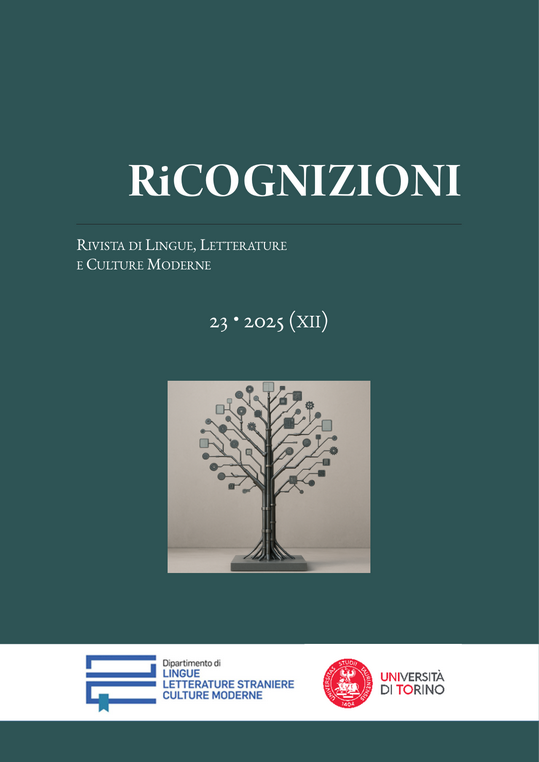On the Intelligibility of a “Created Language”
Language Switching in the Prehistoric Novel Series "Sous le vent du monde" by Pierre Pelot
DOI:
https://doi.org/10.13135/2384-8987/11512Keywords:
Prehistoric Novel, Codeswitching, Invented Language, Literary Dialog, Pierre PelotAbstract
In most prehistoric fiction dialog is translated silently into the language of the narration, either in a neutral style, or incorporating othering modifications which make apparent its artificial nature. In the series of novels Sous le vent du monde by the French author Pierre Pelot, however, the dialog is given in a fictionally authentic form, using two distinct languages invented by Pelot. The consequent switching, while avoiding the diegetic incoherence of modern language exchanges in a prehistoric frame, may be unintelligible or only partly intelligible for the reader. This chapter looks at the way Pelot makes the instances of his created language accessible to readers, both in the lines of dialog and in the frequent incorporation of other-language items in the narrative. Linguistically, the invented languages are highly synthetic, and noun-heavy, using juxtaposition extensively to convey meaning and thus avoiding the difficult-to-convey values of grammatical words or closed-group items. The author further incorporates glosses and developments around these examples of code-switching in a way which permits the reader to deduce the meaning of many of the referents.
Downloads
Published
How to Cite
Issue
Section
License
RiCognizioni is published under a Creative Commons Attribution 4.0 International License.
With the licence CC-BY, authors retain the copyright, allowing anyone to download, reuse, re-print, modify, distribute and/or copy their contribution. The work must be properly attributed to its author.
It is not necessary to ask further permissions both to author or journal board.








